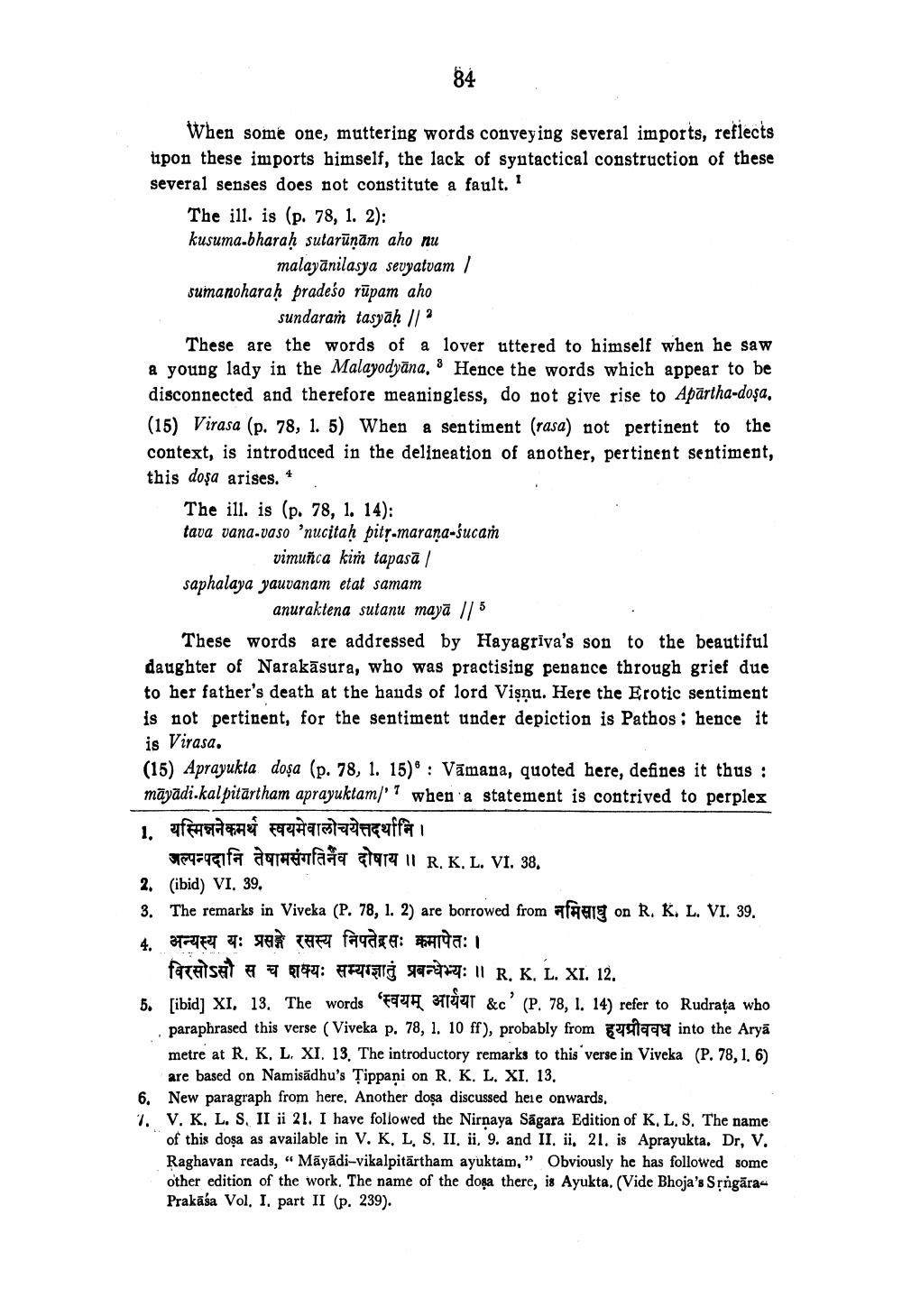________________ When some one, muttering words conveying several imports, reflects upon these imports himself, the lack of syntactical construction of these several senses does not constitute a fault." The ill. is (p. 78, 1. 2): kusuma-bharah sutarunam aho nu malayanilasya sevyatvam / sumanoharah pradeso rupam aho sundaram tasyah // ? These are the words of a lover uttered to himself when he saw a young lady in the Malayodyana. : Hence the words which appear to be disconnected and therefore meaningless, do not give rise to Apartha-dosa, (15) Virasa (p. 78, 1. 5) When a sentiment (rasa) not pertinent to the context, is introduced in the delineation of another, pertinent sentiment, this dosa arises. + The ill. is (p. 78, 1. 14): tava vana-vaso 'nucitah pitp.marana-sucam | uimuYca kem tapasa / saphalaya yauvanam etat samam anuraktena sutanu maya 1/5 These words are addressed by Hayagriva's son to the beautiful daughter of Narakasura, who was practising penance through grief due to her father's death at the hands of lord Visnu. Here the Erotic sentiment is not pertinent, for the sentiment under depiction is Pathos ; hence it is Virasa. (15) Aprayukta dosa (p. 78, 1. 15)(r) : Vamana, quoted here, defines it thus : mayadi.kalpitartham aprayuktam/'? when a statement is contrived to perplex 1. यस्मिन्ननेकमर्थ स्वयमेवालोचयेत्तदर्थानि / If aquara atat ll R.K. L. VI. 38. 2. (ibid) VI, 39. 3. The remarks in Viveka (P. 78, 1. 2) are borrowed from afas on R. K. L. VI. 39. 4. अन्यस्य यः प्रसङ्गे रसस्य निपतेद्रसः क्रमापेतः / fETATSAT # 7677: a 11 , K, L. XI. 12. 5. [ibid] XI, 13. The words Fach B ar &c' (P. 78, 1. 14) refer to Rudrata who paraphrased this verse (Viveka p. 78, 1. 10 ff), probably from 491999 into the Arya metre at R, K, L, XI, 13. The introductory remarks to this verse in Viveka (P. 78,1.6) are based on Namisadhu's Tippani on R. K. L. XI. 13. 6. New paragraph from here. Another dosa discussed here onwards, 7. V. K. L. S. II ii 21. I have followed the Nirnaya Sagara Edition of K.L.S. The name of this dosa as available in V. K, L, S, II, ii, 9. and II. ii, 21. is Aprayukta. Dr, V. Raghavan reads, " Mayadi-vikalpitartham ayuktam," Obviously he has followed some other edition of the work. The name of the dosa there, is Ayukta. (Vide Bhoja's SrngaraPrakasa Vol. I. part II (p. 239).




